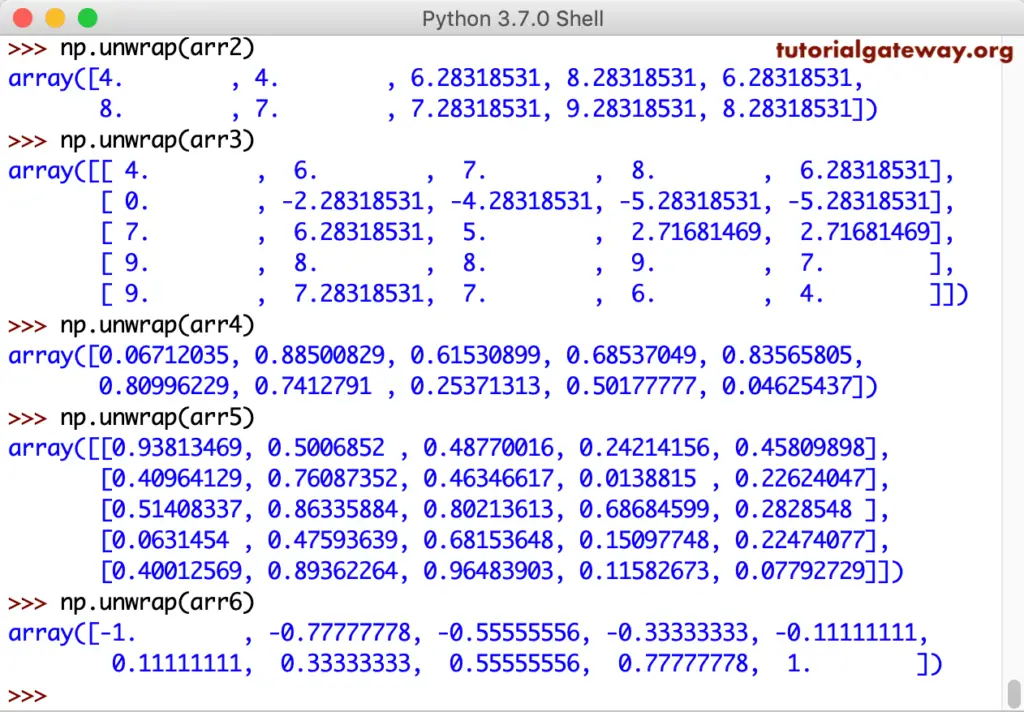Python numpy module has various trigonometric functions such as sin, cos, tan, sinh, cosh, tanh, arcsin, arccos, arctan, arctan2, arcsinh, arccosh, arctanh, radians, degrees, hypot, deg2rad, rad2deg, and unwrap. Use these numpy Trigonometric Functions on both one dimensional and multi-dimensional arrays.
We use the below arrays to demonstrate the Python numpy Trigonometric Function.
arr1 = np.array([0, 30, 45, 60, 90, 180]) arr1 arr2 = np.random.randint(0, 10, size = (10)) arr2 arr3 = np.random.randint(10, size = (5, 5)) arr3 arr4 = np.random.random((10)) arr4 arr5 = np.random.random((5, 5)) arr5 arr6 = np.linspace(-1, 1, 10) arr6
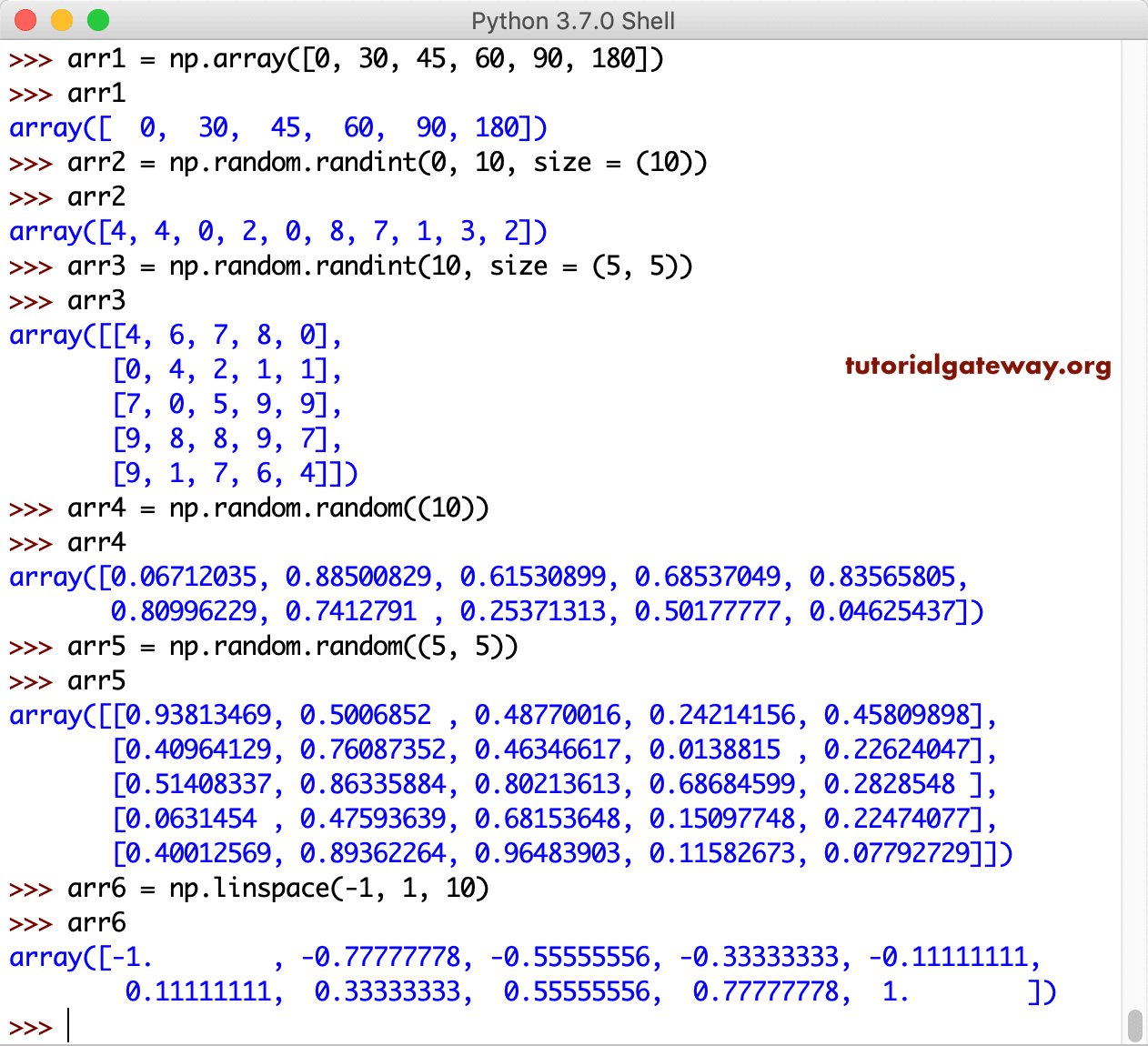
Python numpy Trigonometric Functions Examples
The list of available Python numpy Trigonometric Functions with an example of each.
Python numpy sin function returns the sine value of a given array.
np.sin(arr1) np.sin(arr2) np.sin(arr3) np.sin(arr6)
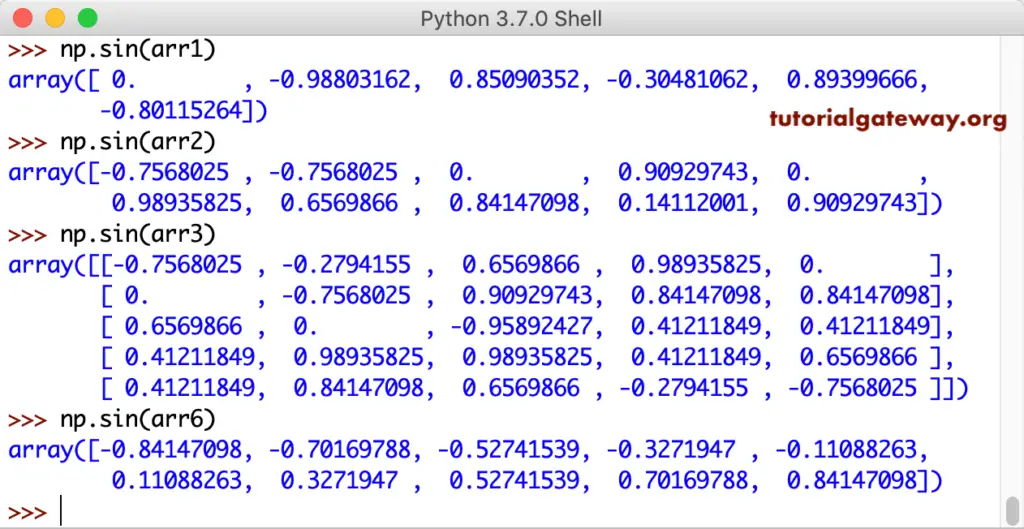
The Python numpy cos function returns the cosine value of a given array.
np.cos(arr1) np.cos(arr2) np.cos(arr3) np.cos(arr6)
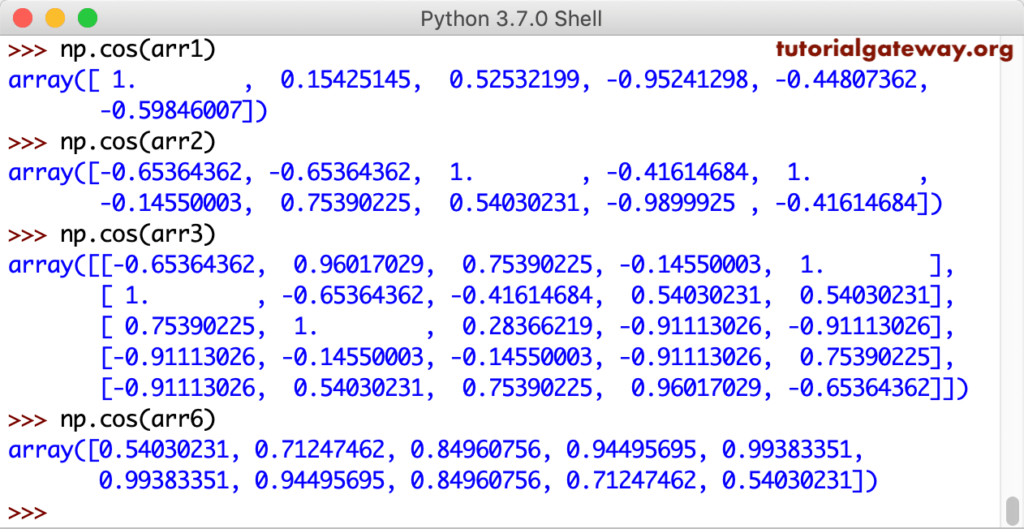
The Python numpy tan function returns the tangent value of a given array.
np.tan(arr1) np.tan(arr2) np.tan(arr3) np.tan(arr6)
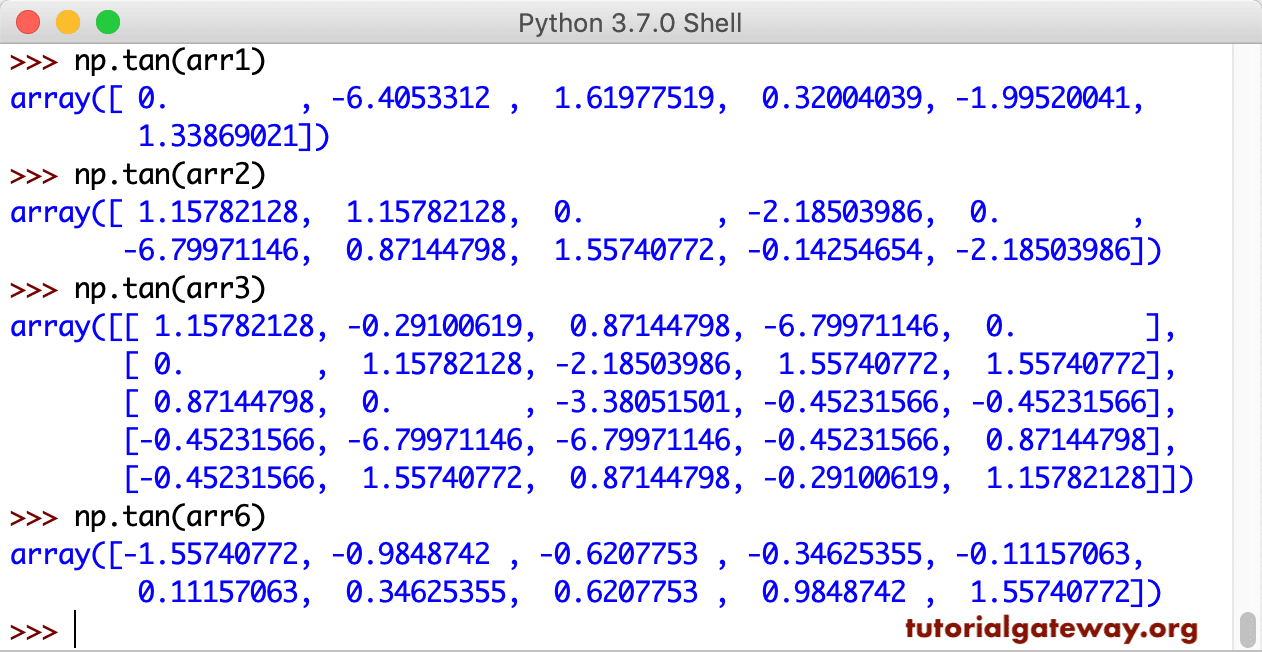
Python numpy sinh function returns the hyperbolic sine value of a given array.
np.sinh(arr1) np.sinh(arr2) np.sinh(arr3)
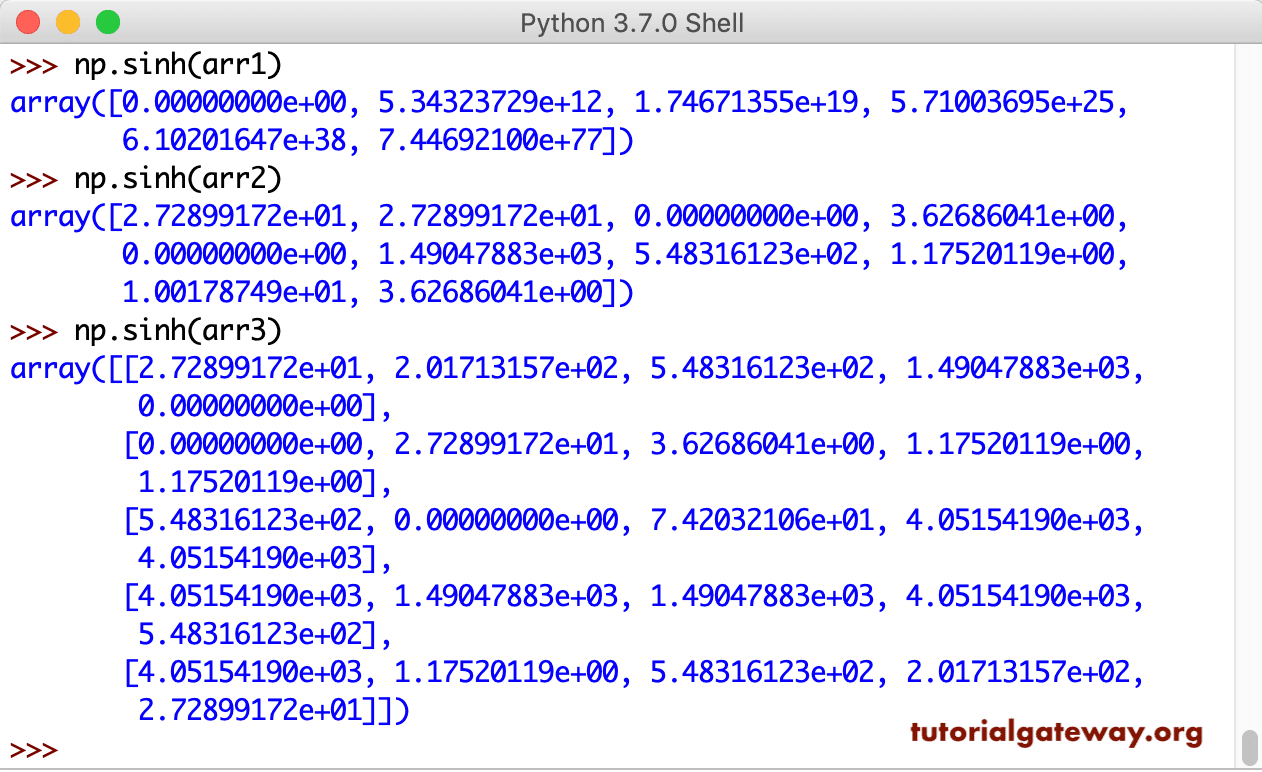
The Python numpy cosh function prints the hyperbolic cosine value of all the elements in a given Python array.
np.cosh(arr1) np.cosh(arr2) np.cosh(arr3)
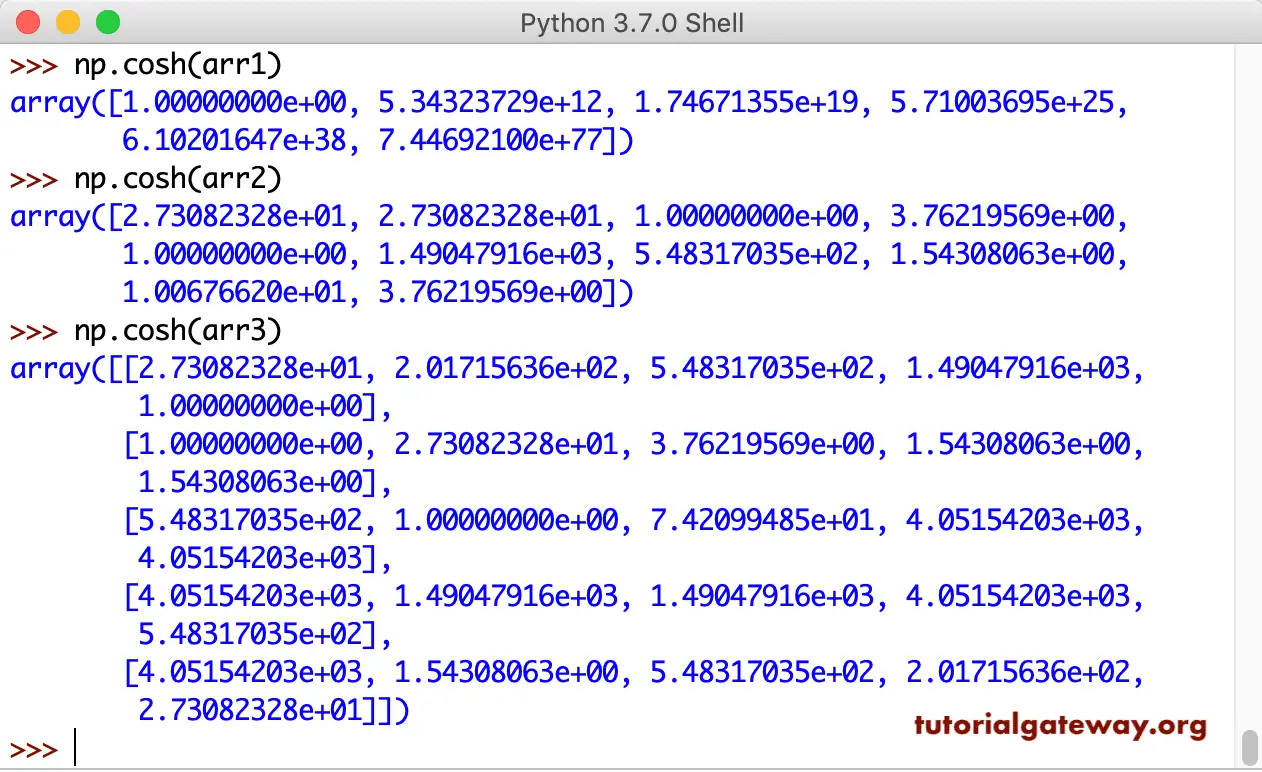
The Python numpy tanh trigonometric function display the hyperbolic tangent values of a given array.
np.tanh(arr1) np.tanh(arr2) np.tanh(arr3)
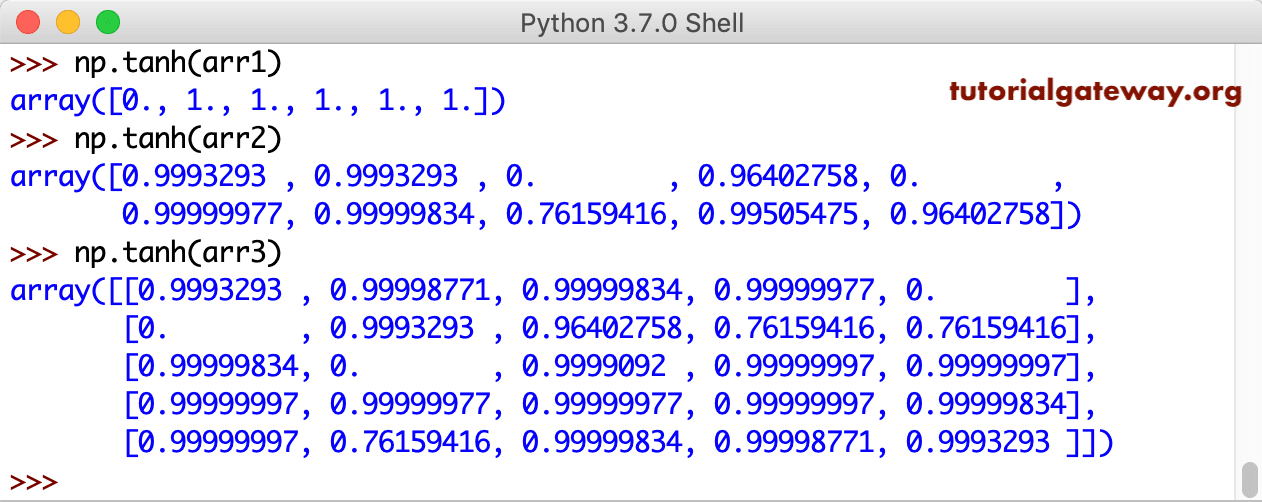
Python numpy arcsinh function returns the hyperbolic arc sine value of a given array.
np.arcsinh(arr1) np.arcsinh(arr2) np.arcsinh(arr3)
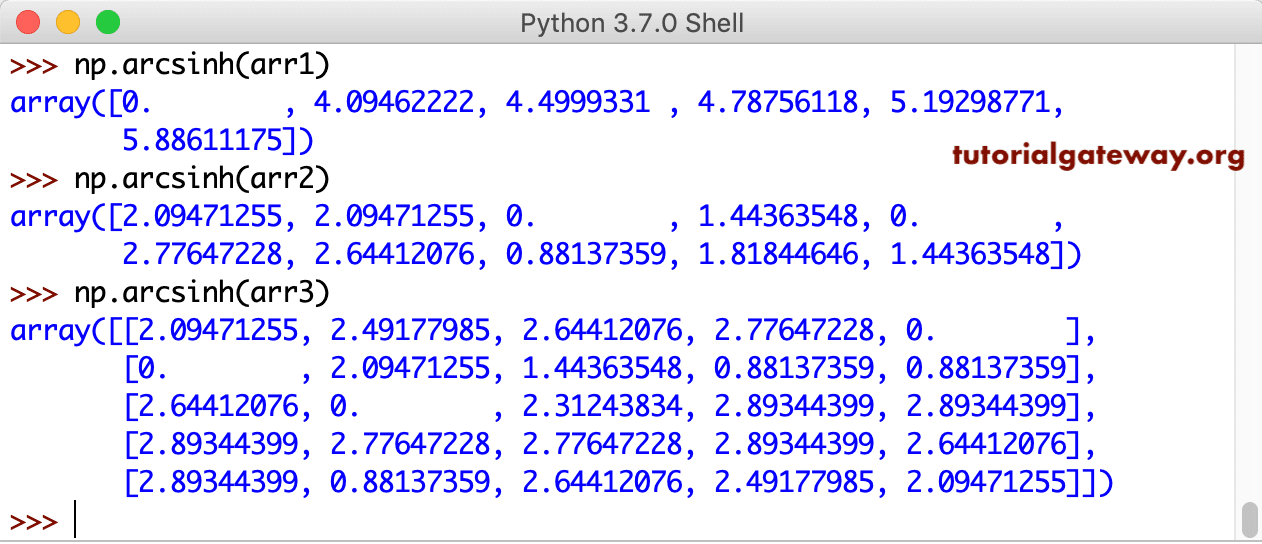
Python numpy arccosh function returns the hyperbolic arc cosine value of all the elements in a given array.
np.arccosh(arr1) np.arccosh(arr2) np.arccosh(arr3)
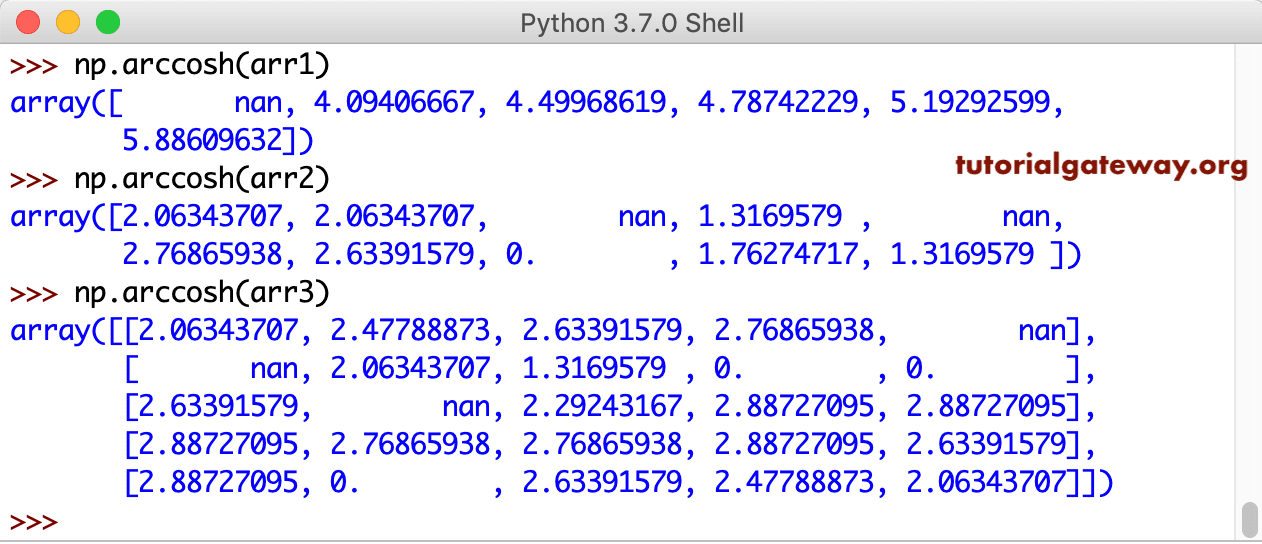
The numpy arctanh function returns the hyperbolic arc tangent values of a given array.
np.arctanh(arr4) np.arctanh(arr5) np.arctanh(arr6)
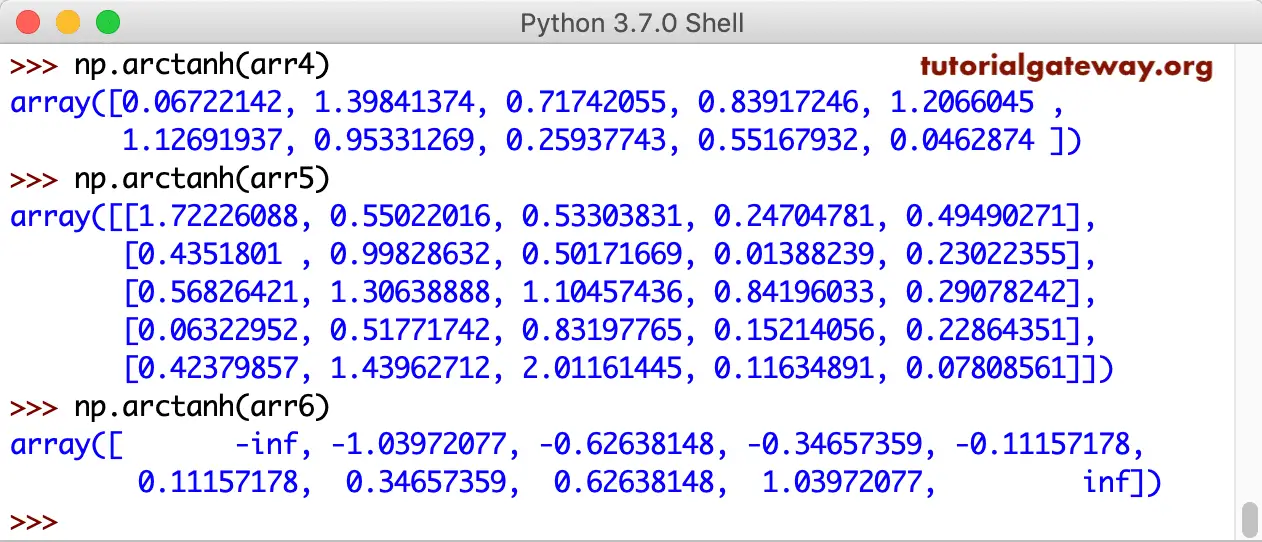
The numpy arcsin function returns the arc sine values of a given array.
np.arcsin(arr4) np.arcsin(arr5) np.arcsin(arr6)
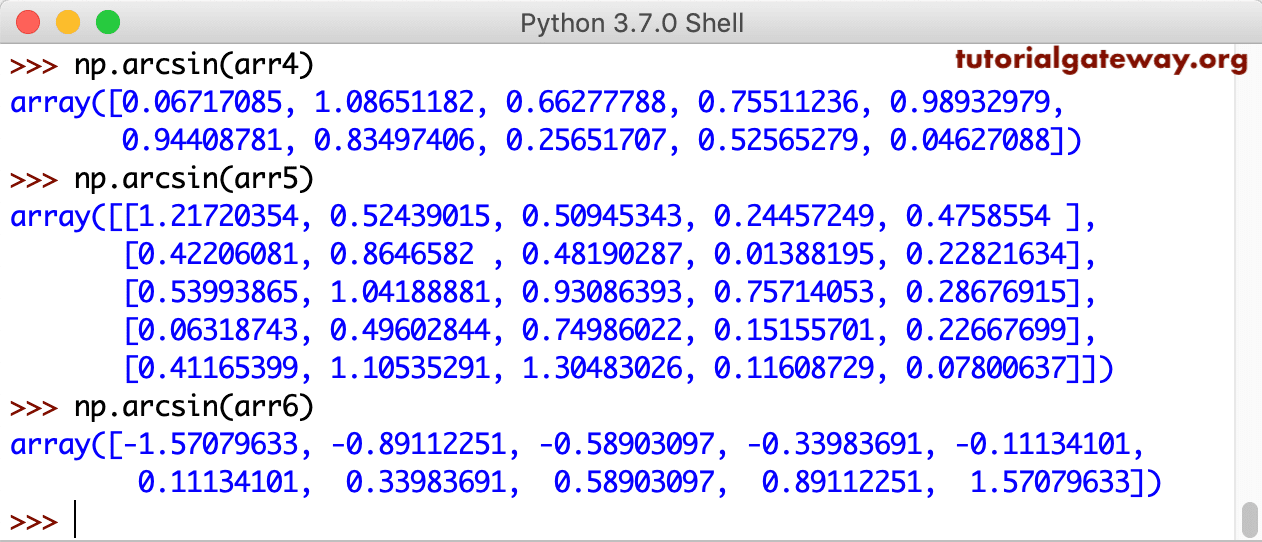
Python numpy arccos function returns the given array arc cosine values.
np.arccos(arr4) np.arccos(arr5) np.arccos(arr6)
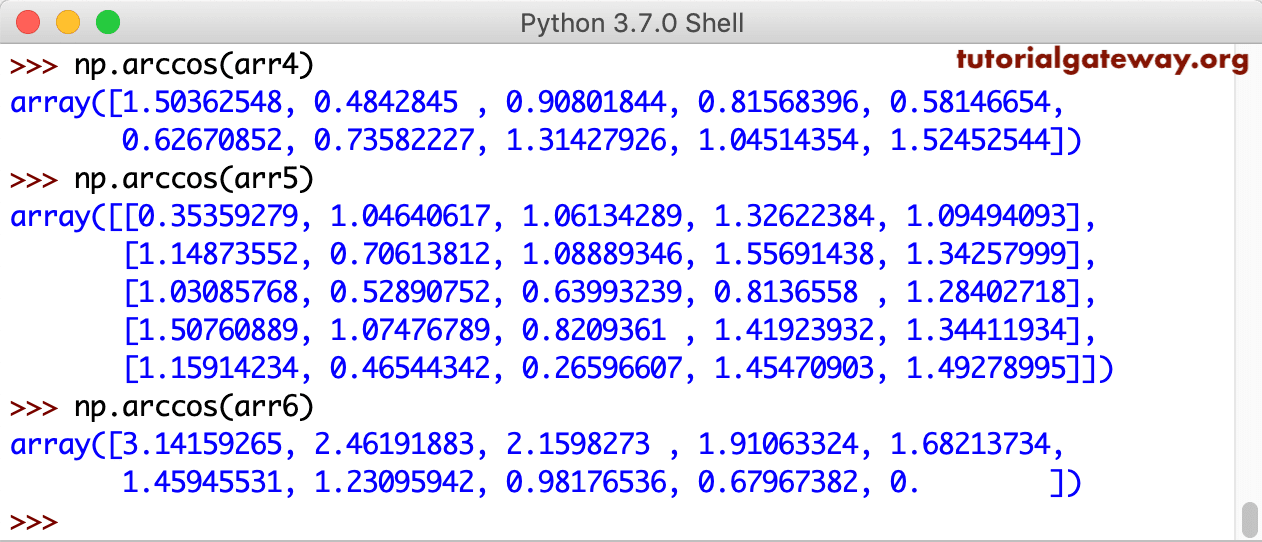
This Python numpy arctan function returns the arc tangent values of an array.
np.arctan(arr1) np.arctan(arr2) np.arctan(arr3)
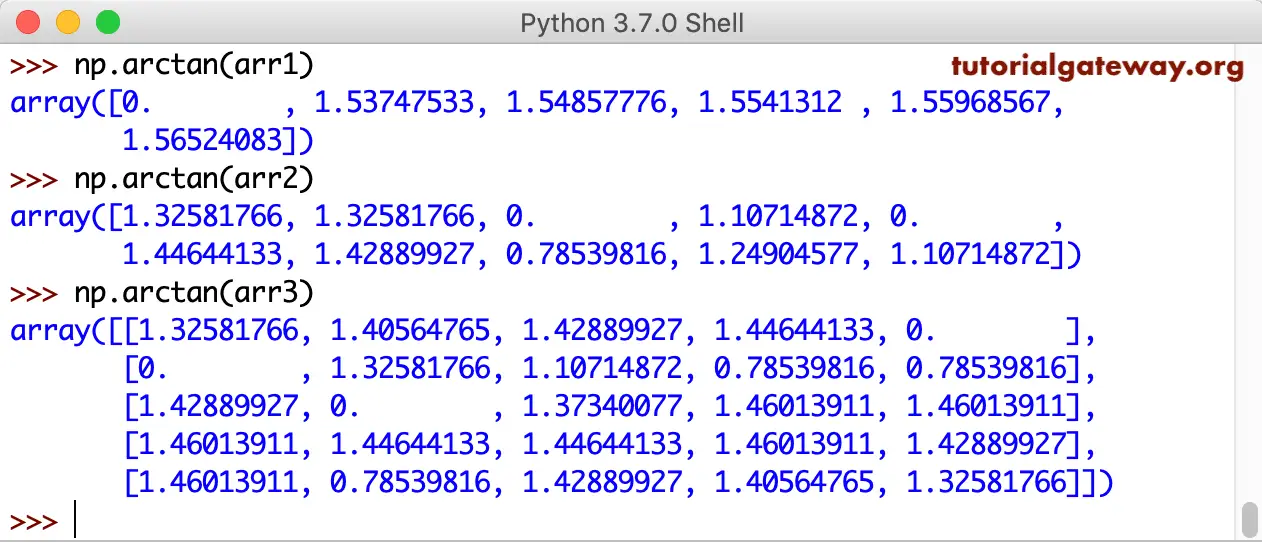
The Python numpy arctan2 function returns the element-wise arc tangent values of an array. It accepts two arrays as arguments x1 and x2 and returns x1/x2.
np.arctan2(arr2, arr6) np.arctan2(arr6, arr2) np.arctan2(arr3, arr5) np.arctan2(arr5, arr3)
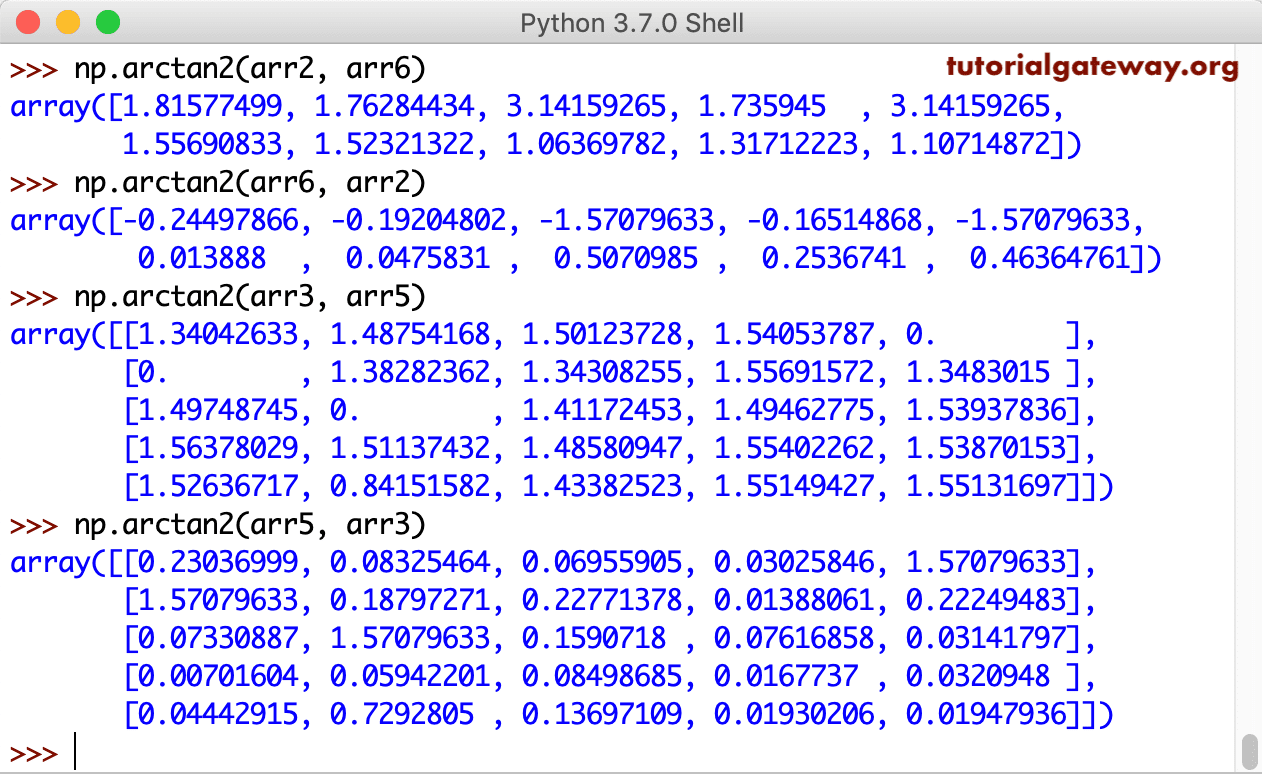
Python numpy hypot function returns the hypotenuse of the arguments x1 and x2.
np.hypot(arr2, arr6) np.hypot(arr3, arr5)
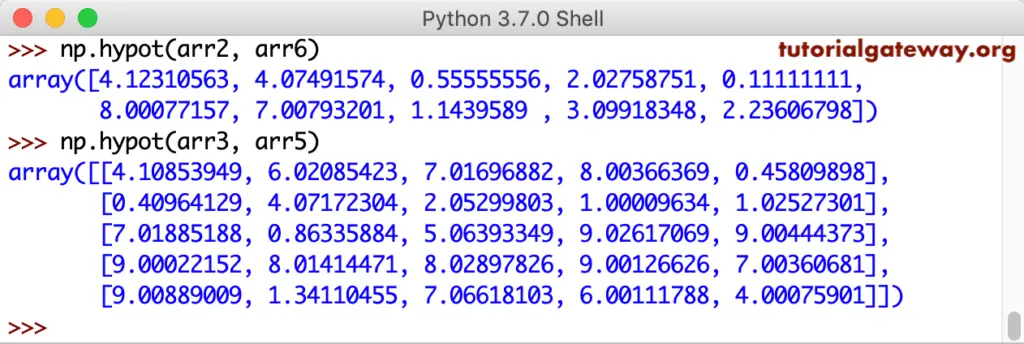
The Python numpy radians function converts angles from degrees to radians in an array.
np.radians(arr1) np.radians(arr1 * 30) np.radians(arr1 * 180) np.radians(arr2 * 90) np.radians(arr3 * 180) np.radians(arr4) np.radians(arr5 * 180)
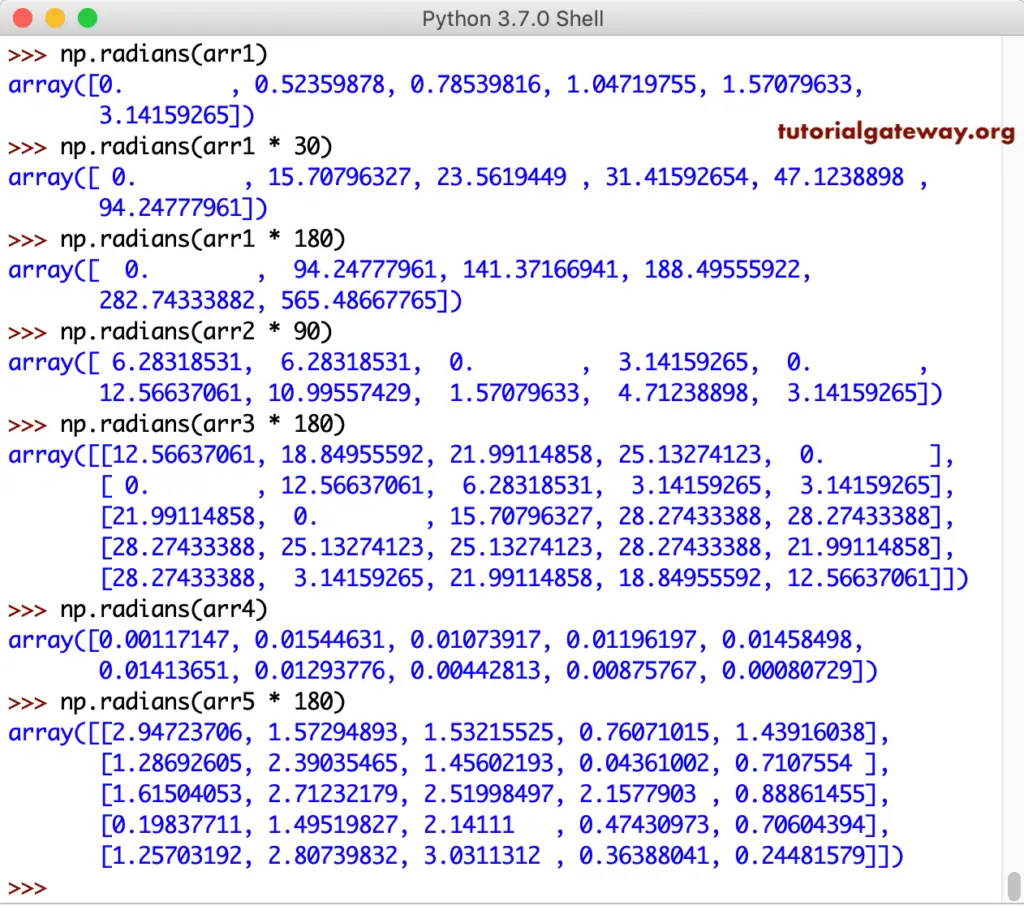
The Python numpy degrees function converts angles from radians to degrees in an array.
np.degrees(arr1) np.degrees(arr1/30) np.degrees(arr1/60) np.degrees(arr2) np.degrees(arr3/30) np.degrees(arr4) np.degrees(arr5)
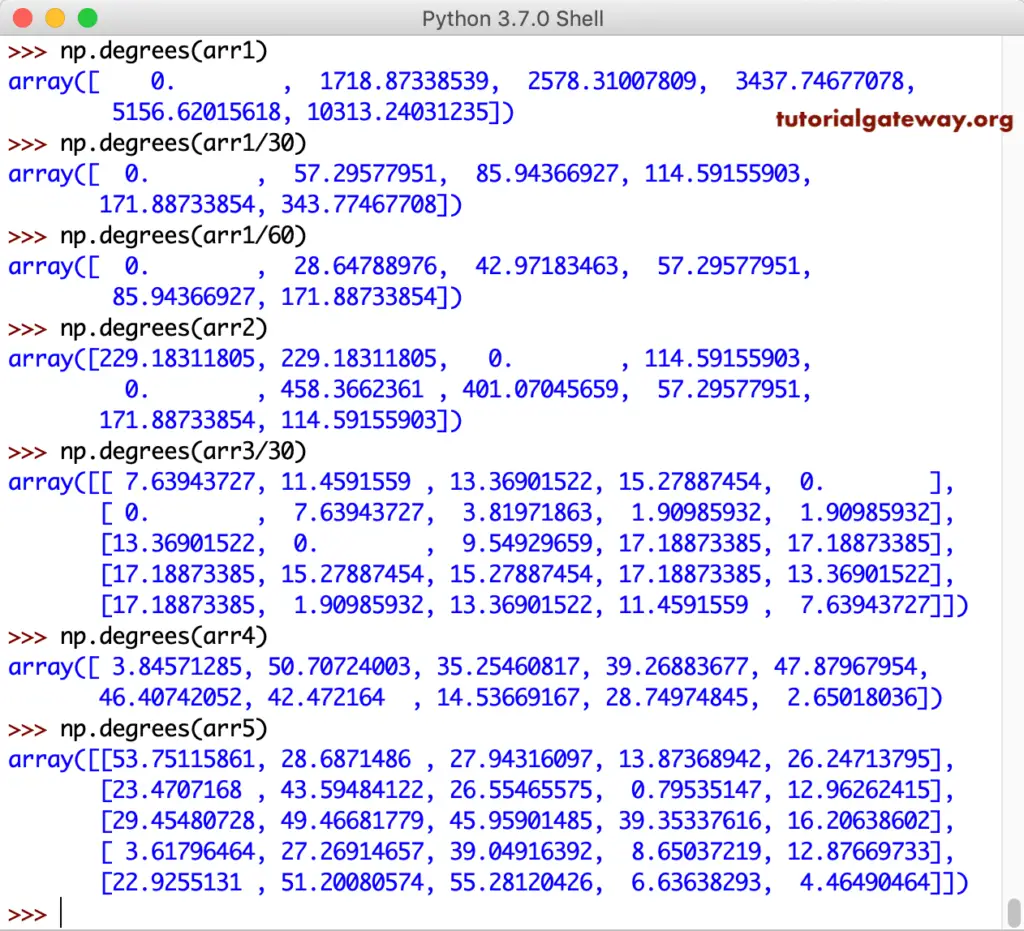
Python numpy deg2rad function converts from degrees to radians. deg2rad(n) is similar or equal to n * pi / 180 (pi or np.pi holds value 3.14)
np.deg2rad(180) np.deg2rad(arr1) x = np.array([0, 30, 60, 90, 120, 180, 360]) np.deg2rad(x)
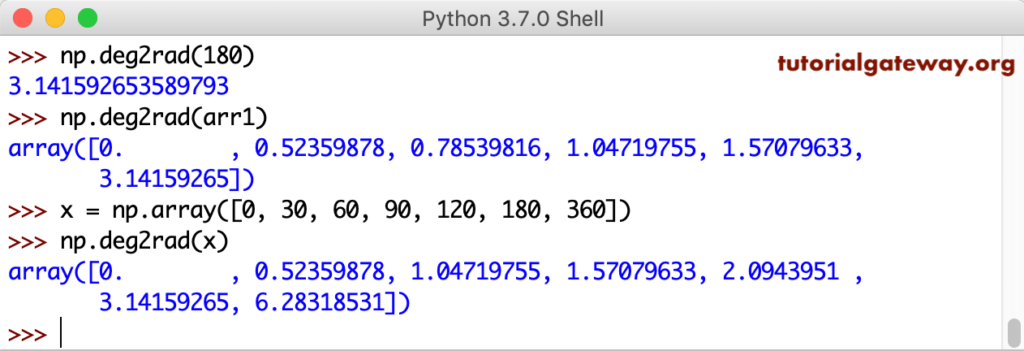
The Python numpy rad2deg function converts from radians to degrees. rad2deg(n) is similar or equal to 180 * n / pi (pi = 3.14)
np.rad2deg(5) np.rad2deg(arr2) np.rad2deg(arr5) np.rad2deg(arr6)
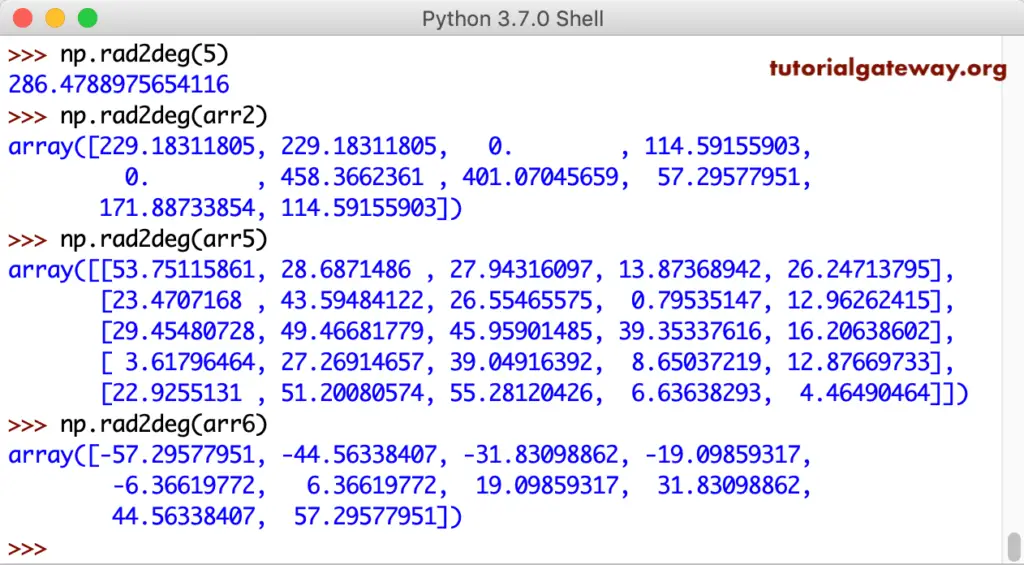
Python numpy unwrap function unwraps the values by changing deltas between values.
np.unwrap(arr2) np.unwrap(arr3) np.unwrap(arr4) np.unwrap(arr5) np.unwrap(arr6)
